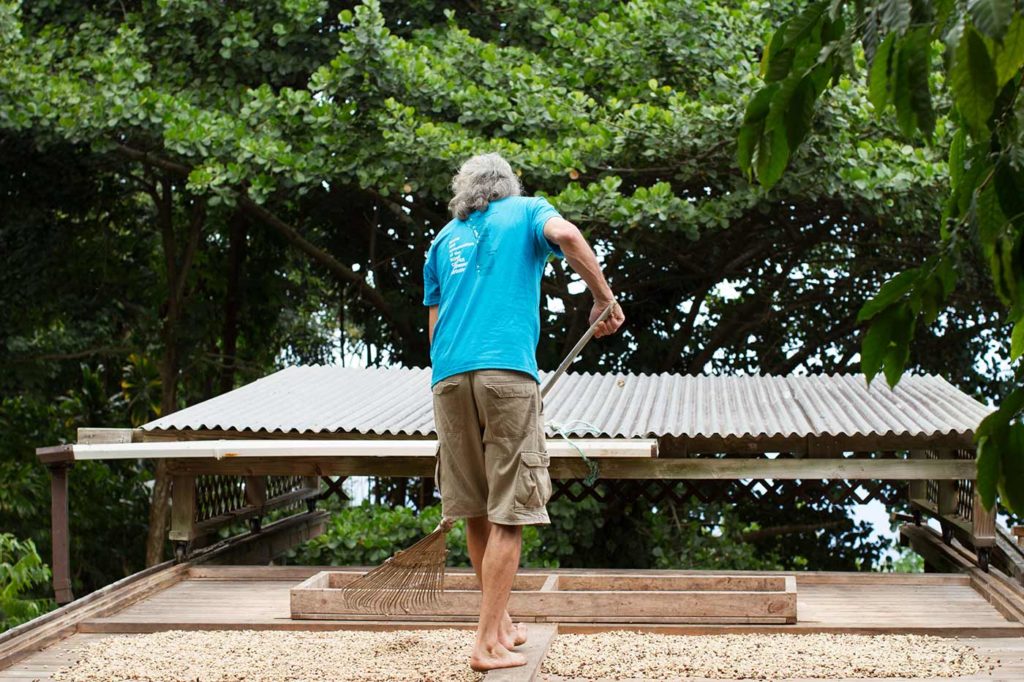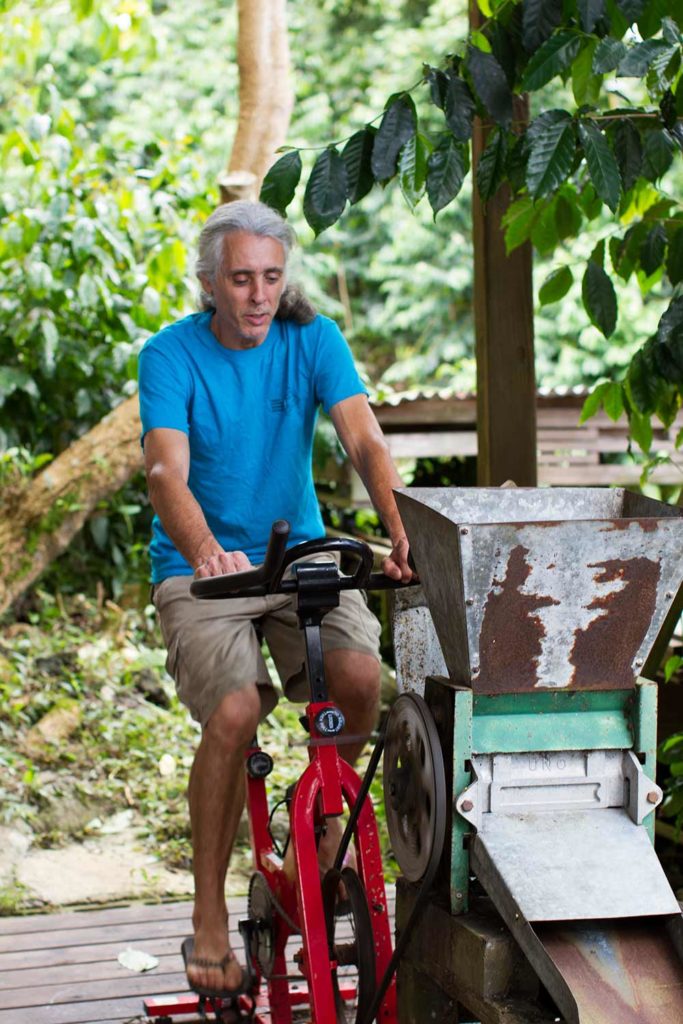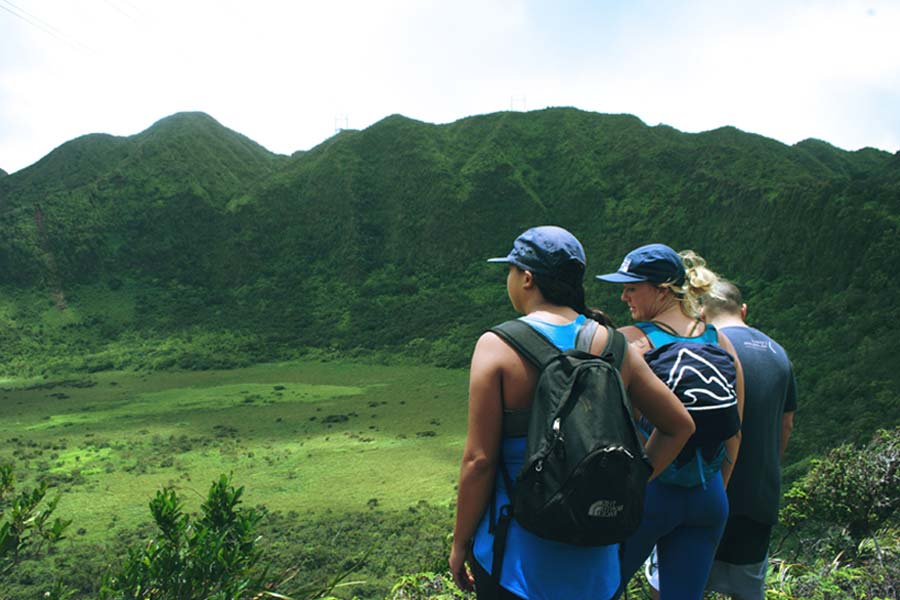Melanie and Colehour Bondera met at UC Davis where they bonded over their shared interest in living a life without fossil fuels and fell in love. The couple bought Kanalani Ohana Farms, their home and business, with the intention to create a sustainable family farm as a unit of
sustainable community which could in turn, form a sustainable society. In addition to inheriting five fruitful acres in Kealakekua on Hawaii Island, their off-the-grid home came with two solar panels dating back to the 1970s.


The Bonderas added two more panels with the help of a federal grant to power their home and business. The family’s vision for their sustainable home and business included limited fossil fuel use in every aspect of their lives including plastics. “It’s kind of crazy
how few people acknowledge that plastic and fertilizer are all fossil fuels,” said Melanie.
To reduce their carbon footprint, almost all farmwork is hand operated with few exceptions. The Bonderas pulp their coffee using bicycle power and then sun dry their coffee on a traditional hoshidana.
Tell us your story. We want to share it!
Have you already made a change in your life for the good of the planet? Are you ready to take your effort to the next level? Fill out the form below and inspire others to lead Hawaii’s transition to 100% clean energy.
Tell Us Your Story
Join Our Community
Want to stay updated on how our journey to 100% renewable energy is progressing? Fill out the form below to sign up for our mailing list.
Join Our We Are 100 Community
Mahalo!


